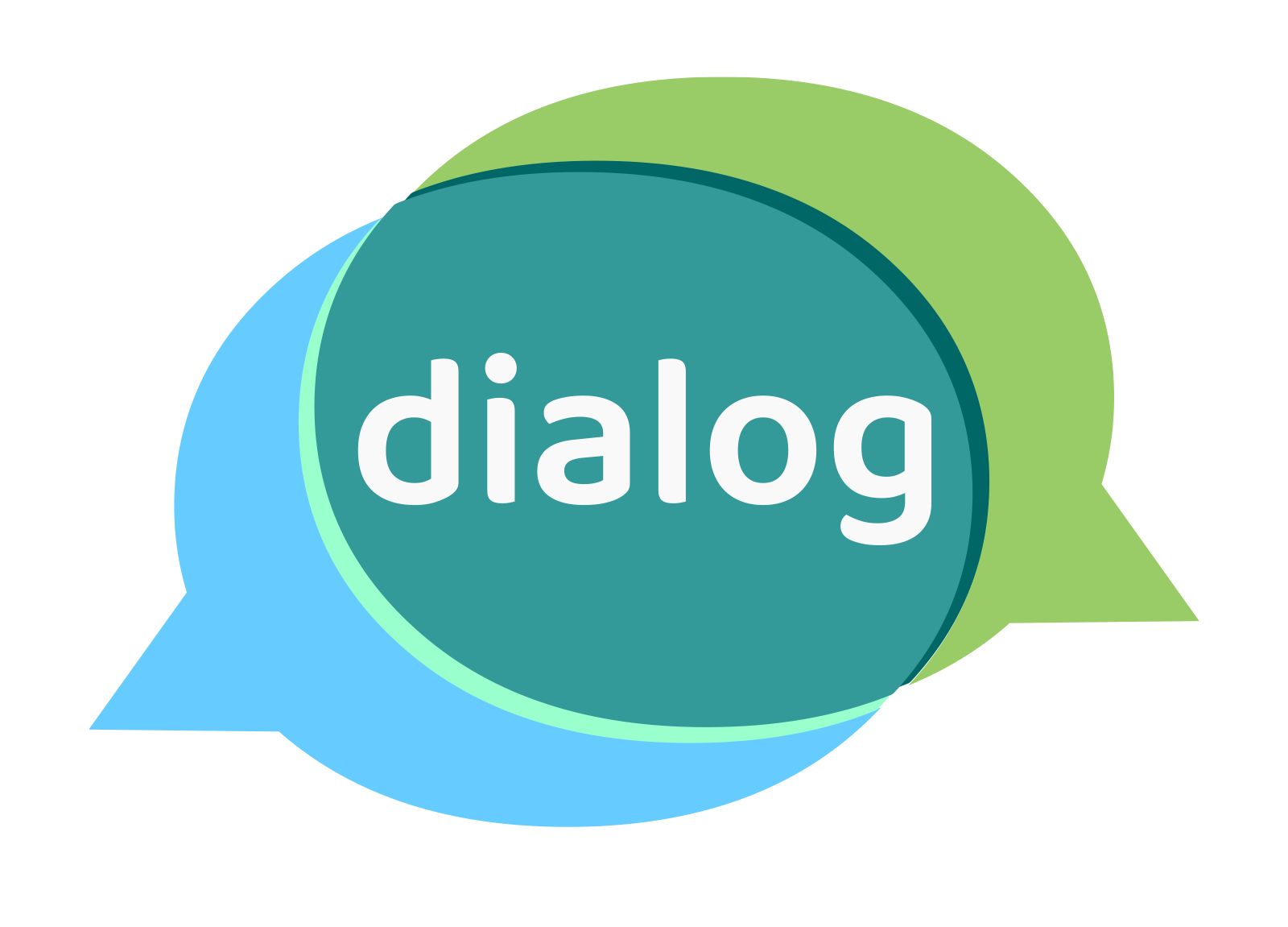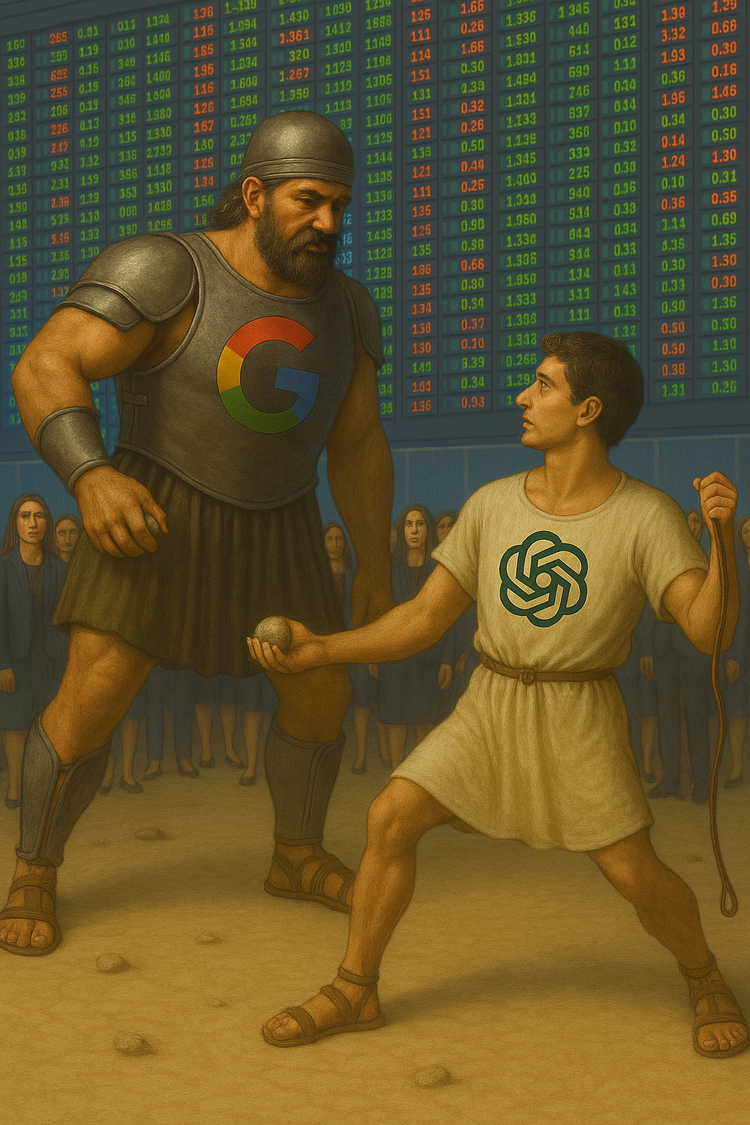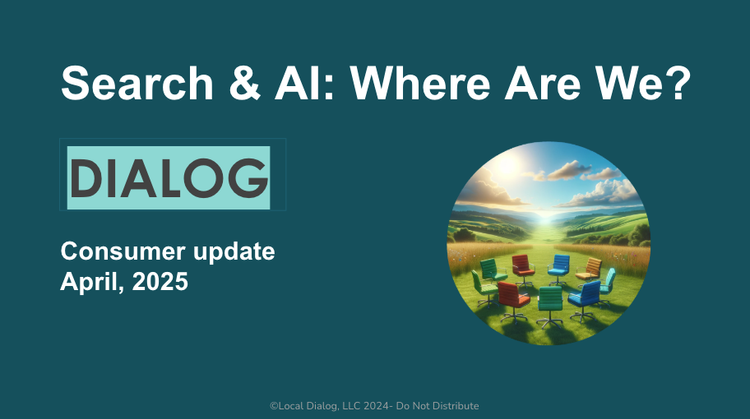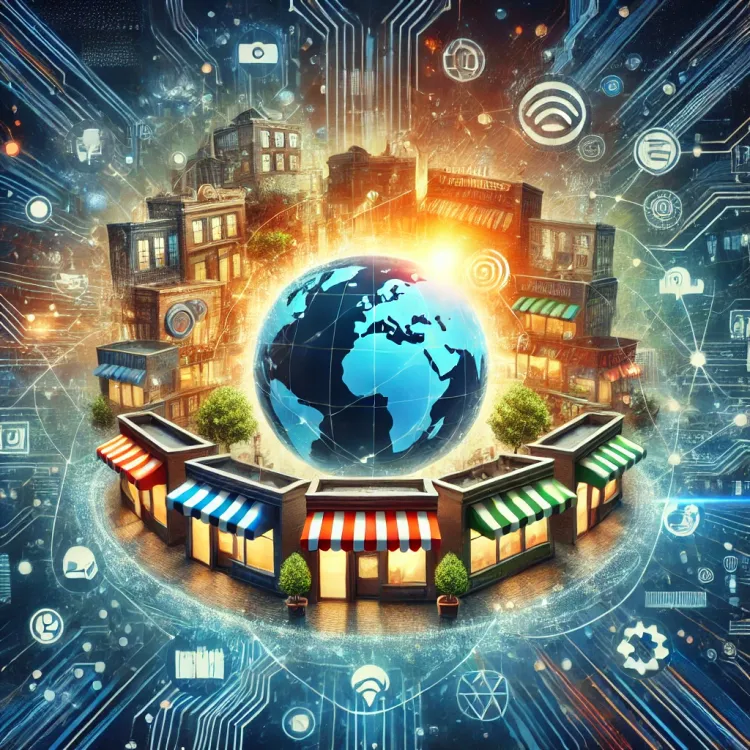Halloween Surprise: SearchGPT Is Live

In a scary Halloween surprise for Google, OpenAI has introduced search into ChatGPT for Plus and Team users. The company had promised, when it launched SearchGPT to a subset of paid subscribers, it would incorporate the product into ChatGPT by the end of the year. Now it has. And it will be coming to the free version at some point in the near future.
Already Very Good
The combination of existing ChatGPT 4o, content licensing deals and Apple Maps (speculation on my part) makes the new ChatGPT with SearchGPT a credible Google challenger out of the gate.
Just like AI itself, ChatGPT is only going to get better. And while ChatGPT + Apple Maps + content licensing + crawling isn't as deep and wide as Google's local knowledge graph, it may be good enough for many use cases.
The clean and uncluttered UI, the ability to understand context (and ask follow up questions), the "conversational" nature of the UX and, last but not least, the absence of ads make this arguably a superior experience to Google overall.
Is it a "Google Killer"? No, but it may cause ChatGPT fans (growing rapidly) to use the site for more types of lookups and content discovery and use Google less accordingly. There's already been some data to suggest this. And our forthcoming consumer survey should shed a good deal of light on the question of whether AI is a supplement or a substitute for Google. The answer is: it depends.
ChatGPT is also showing Chrome users a "switch your default search engine" message, to lure them away from Google.

Rapid Usage Growth
According to OpenAI company statements, ChatGPT now has 250 million weekly users, up from "only" 200 million in August. ChatGPT traffic also recently surpassed Bing, and referral traffic has tripled in the past two months.
Survey data tell us that a healthy percentage of users are, to varying degrees, frustrated with the current state of search. Scorpion 2024 findings point to greater inefficiency and friction vs. several years ago:
- 79% of users say they now look at more search results than five years ago.
- 51% report that searches take longer.
- 46% sometimes question the credibility of search results.
According to a separate Tinuiti survey, heavier AI users (those using it at least monthly) are also using Google less: 45% say they use traditional search engines less; for daily AI users that jumps to 62%.
Another recent survey from digital agency Fractl found that 48% of 1,000 survey respondents had used ChatGPT within the past week. That compares to 97% who'd used Google. Roughly 16% were daily ChatGPT users and 19% were weekly users. These trends were even stronger for younger people.
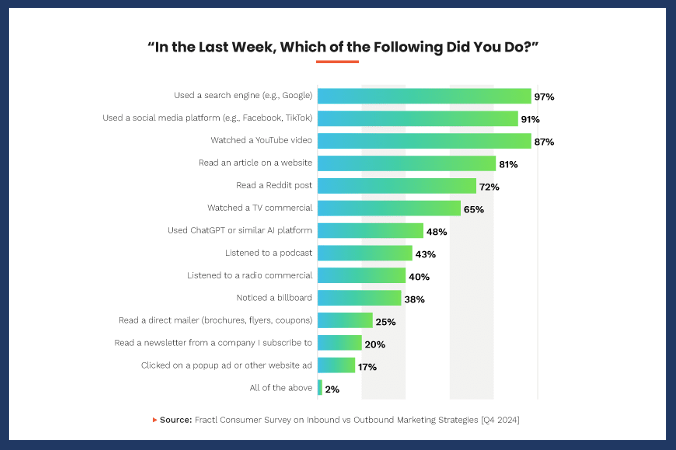
Finally a small study from New Street Research that focused primarily on mobile users found that roughly 59% of the 263 respondents had used AI in the past month "to help research or decide on a purchase."
Now LocalGPT
Now for our "hot take" on the local aspect of SearchGPT. When it first appeared a few months ago, it wasn't very good. But local results have improved, with the addition of Apple Maps – and soon, presumably, Apple business data. Below are some examples.
Best value hotels in NYC: An interactive Apple Map window appears with a horizontal carousel that scrolls as you click map pins or it can be manually advanced. Clicking on a "sources" button below the results opens a right-hand panel and you get a display of the content sources/sites (see below).
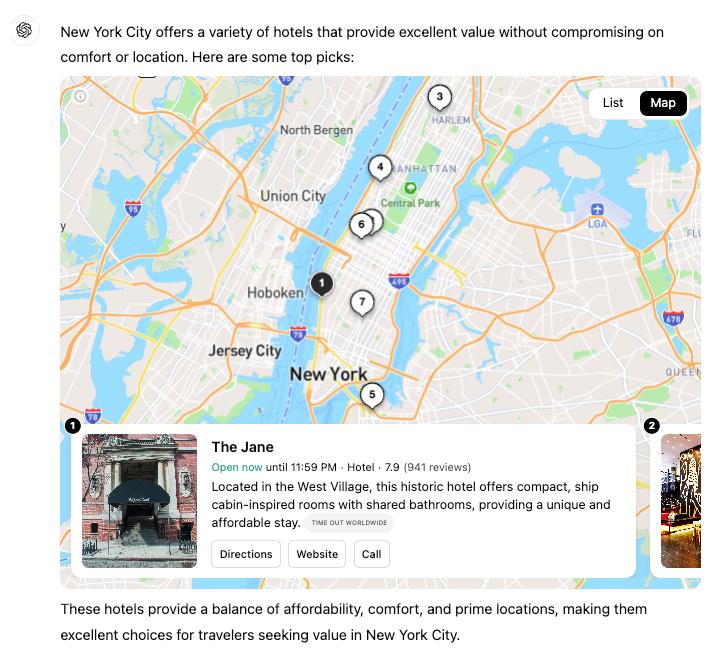
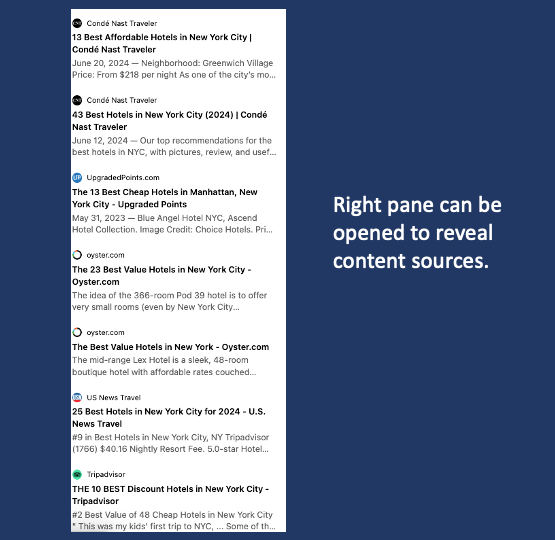
Clicking "directions" on an individual business listing takes you to Apple Maps (or Google Maps if not available). The "website" button goes to the business website and "call" will automatically trigger a mobile call or invoke an app on desktop (for me it was Skype). What's missing are reviews.
Plumber 94118: In some cases, such as the one below, listings were obviously "thin" and not reflective of the number of available businesses in the area. This is my old neighborhood in San Francisco.
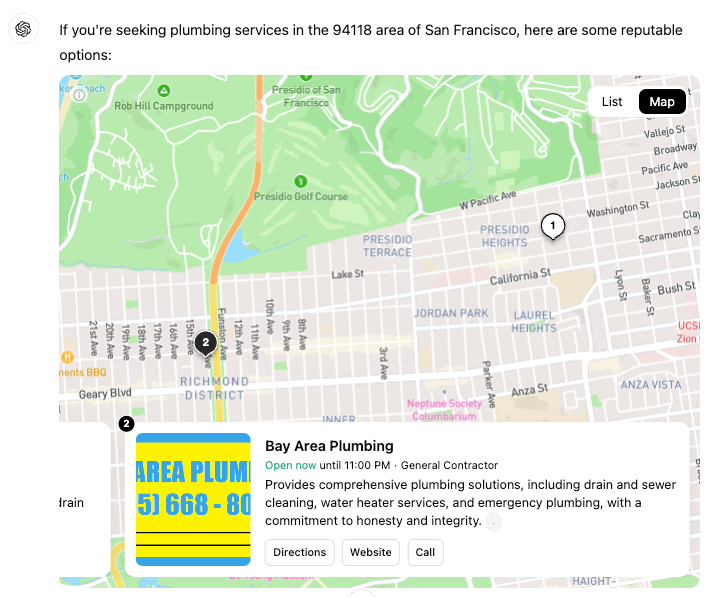
Urgent care San Diego: When a map appears, you also have the option to see a list view of businesses, which is like a Google local pack with a map at the top and three listings below. But sometimes, ChatGPT will show you just a list without a map, as in the example below for "urgent care San Diego." It's not clear why this is.
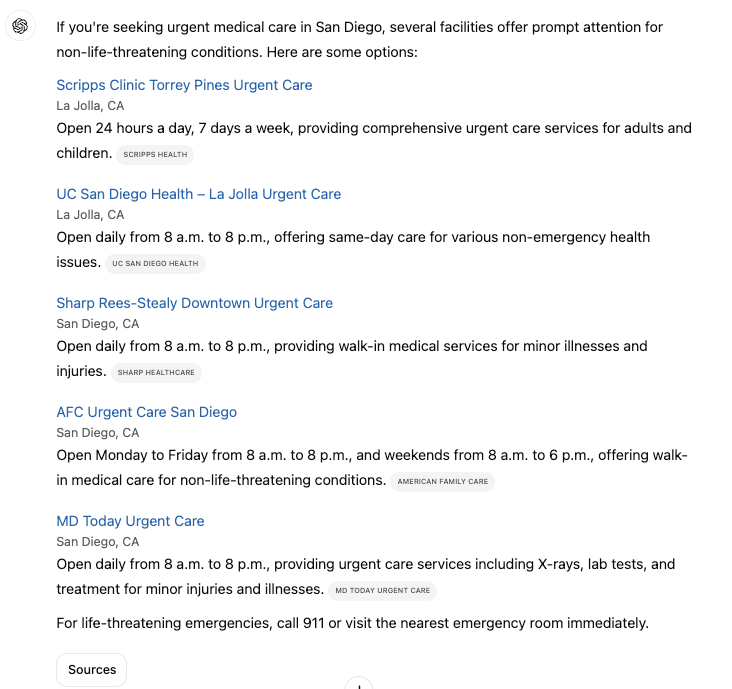
Best sushi Split Croatia: With many "near me" searches I can roughly evaluate the quality of SearchGPT local results. In other contexts it's more difficult because I'm unfamiliar with businesses in the area.
However, I was just in Croatia for the SIINDA conference and went out for sushi. I can attest to the fact that the top result below is a very good sushi restaurant, having eaten there (I found it originally with Google).
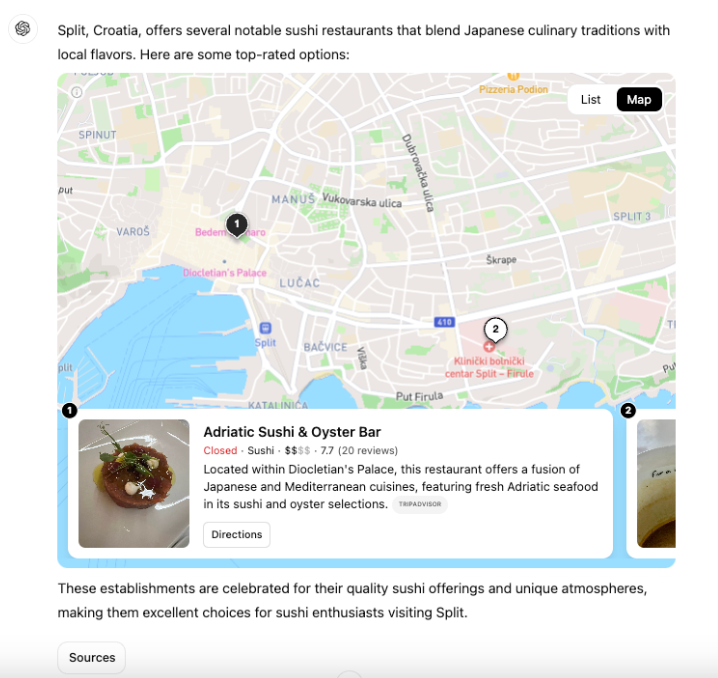
We could go on and on with examples and do side-by-side comparisons. I'm fairly confident in a "taste test" scenario Google would probably win. But the fact that SearchGPT offers credible local results is impressive. It's only going to get better.
Beyond this, you can do extensive planning, ask multiple follow-ups and do numerous refinements without starting over because it remembers context. That's a big deal in complex planning or buying scenarios. It also represents search personalization.
The ability to ask more complex queries, which Google is working on with AI Overviews, and follow up questions makes using ChatGPT a more satisfying and potentially more useful experience, depending on the context.
Impact on Google
So what will be the impact on Google? Is this something that people will use, in an "additive" way, along with Google? Or will people swap ChatGPT for Google? Google's very successful Q3 earnings report suggests the company hasn't seen any material impact from ChatGPT or Perplexity – yet.
The "Google habit" is hard to break. Never underestimate the power of inertia or the power of the Google brand. But ChatGPT represents a truly differentiated experience. It's not merely a Google clone, like so many of Google's rivals (see, Bing, DuckDuckGo). And the ChatGPT experience, with its greater depth and more varied use cases may successfully, albeit slowly, siphon away usage. As I've said numerous times before, I use Google about 50% less than I previously did because of ChatGPT (mostly) and Perplexity.
The next 12 months will be very telling. ChatGPT/SearchGPT will likely continue to grow and get better, but how much? Much depends on the OpenAI team, which has suffered numerous departures and defections, and continuous product improvements.
Meanwhile, Google isn't sitting still obviously. It just rolled out AI Overviews to 100 more countries. The company is aggressively trying to reclaim the AI Iron Throne.
What Now, What's Next?
OpenAI said in its blog post today, "We plan to keep improving search, particularly in areas like shopping and travel, and leverage the reasoning capabilities of the OpenAI o1 series to do deeper research. We also plan to bring our new search experience to Advanced Voice and canvas, as well as to Free and logged out users in the future."
Game on Google.
Note: I'm speculating about Apple's involvement; it hasn't been confirmed. But the conjecture is based on the partnership OpenAI and Apple have.
Update: The mapping application OpenAI appears to be using is probably OpenStreetMap. Overture Maps also offers open source mapping data. But it does not (at this time) appear to be Apple Maps.
